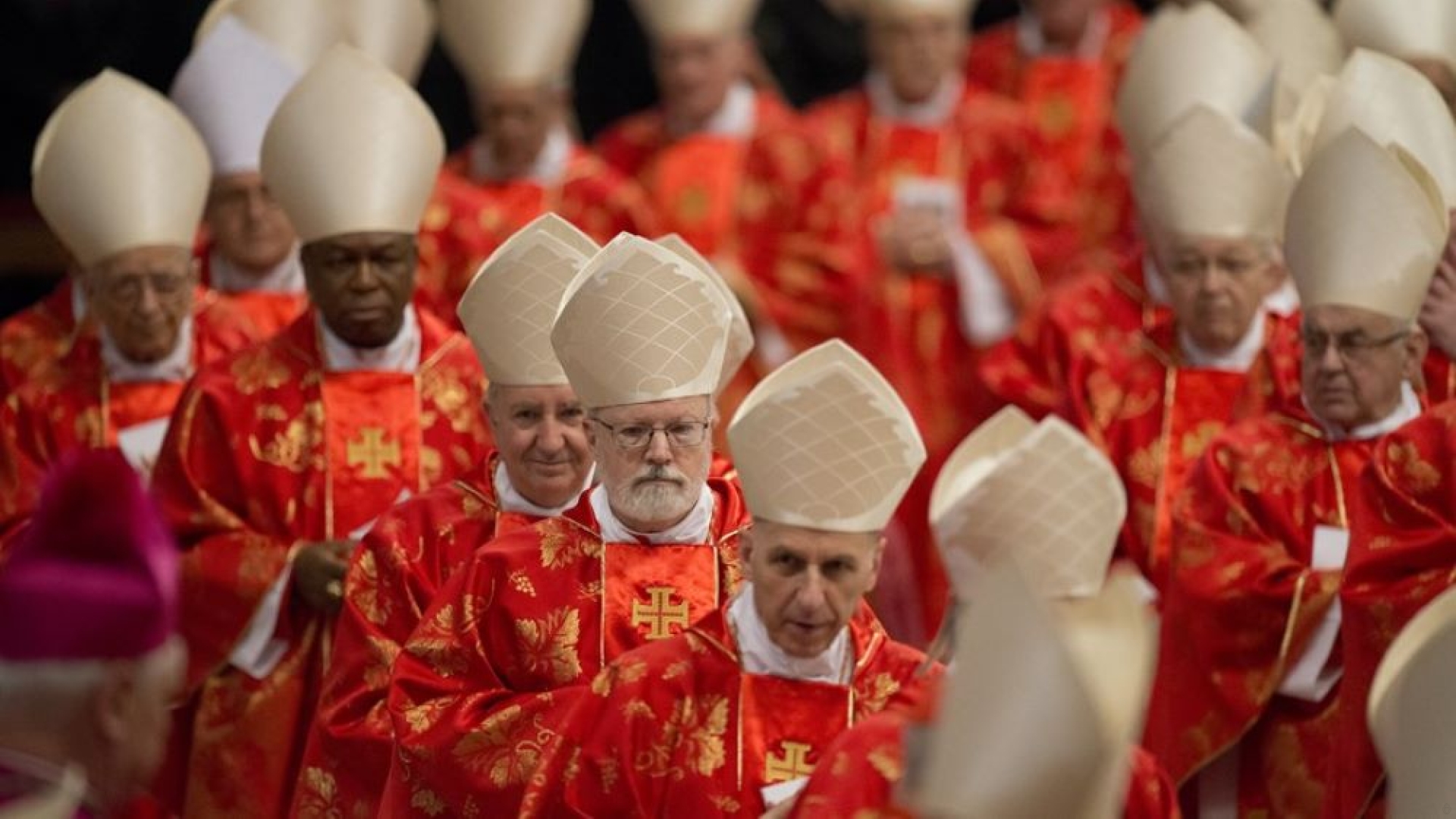Pope Francis Discusses the 2013 Conclave

Cardinals entering the Sistine Chapel on March 12, 2013
Speaking once again in the Italian press on January 29, 2024, Pope Francis revealed several pieces of information, little known to the general public until now, on the progress of the conclave which brought him to the sovereign pontificate in March 2013. It is an interview with overtones of justification at a time when the Pontiff's reformism seems to have entered a critical phase.
According to Pope Francis, his destiny, and that of the Church was sealed on the morning of Saturday March 9, 2013, when he who was still cardinal-archbishop of Buenos Aires gave a speech on the theme of the “outgoing” Church, greeted by loud applause from a large part of the Sacred College at the time.
“That speech was my condemnation. I did not realize the campaign that was started to elect me,” the Roman Pontiff explains to La Stampa. Information which confirms a posteriori the hypothesis put forward on March 27, 2013 – a few days after the election of the successor of Benedict XVI – by Sandro Magister.
“His words then made a strong impression on many of his listeners. Bergoglio improvised. But we now have the report, written in his own hand, of what he said,” explained the Vaticanist in the columns of L’Espresso.
In the interview he gave to La Stampa on January 29, Pope Francis added the anecdote of a cardinal whom he does not name, and who called out to him after his intervention at the pre-conclave: “What you said is beautiful, beautiful, beautiful! We need a pope like you…”
However, should literal meaning be given to the formula of the first Jesuit in history to become Pope, when he explains to his Italian interlocutor that he “(did not) realize the campaign which had started to get (him) elected”? It does not seem so if one goes by what Andréa Tornielli wrote just before the March 2013 conclave.
This close friend of Francis reported: “Four years of Bergoglio could be enough to change things,” murmurs a long-time friend about the Archbishop of Buenos Aires. … In the third round of voting in the 2005 conclave, he obtained around forty votes, which placed him just behind Ratzinger. … He will certainly be one of the key figures at the conclave.”
Related Article:
Why Come Back to the 2013 Conclave?
In the very closed circle of Vaticanists, it is said that the real question is rather that of understanding why the Pope decided to once again evoke the conclave which elected him more than ten years ago. Is this a way of anticipating an autobiography which should be available, with great press and in several languages, within a few months?
Or should it be seen as the desire to legitimize a reformist impulse which seems to have reached a critical phase, particularly since the fiasco of the Fiducia supplicans declaration which, by opening the way to “non-ritual blessings” of non-legitimate “couples,” has triggered an outcry among many bishops, priests, and faithful around the world?
For Andrea Gagliarducci, this evocation of the conclave legitimizes reforms which risk destabilizing the Church and making her lose her credibility: “returning to the conclave means recalling the mandate to reform the Church which was then entrusted to him, and bringing back into the light the themes that emerged during the general congregations of cardinals,” explains this specialist.
The message sent by the Vatican would therefore be the following: if entire sections of the world episcopate complain about the direction that the current pontificate is taking, let them remember that Jorge Bergoglio was elected precisely to change the face of the Church, so that she never again finds herself in the media “meat grinder,” as was the case in the last part of Benedict XVI’s reign.
After more than ten years of an unprecedented pontificate, it is clear that the media image of the Church has not necessarily improved: “The scenario that we are currently experiencing is a lesson that illustrates what the 2013 conclave was: and this lesson will have to be taken into account during the next big election,” says Andrea Gagliarducci.
(Sources : La Stampa/L’Espresso/Monday Vatican – FSSPX.Actualités)
Illustration : Flickr / Aleteia Image Department CC BY-NC 2.0 Deed